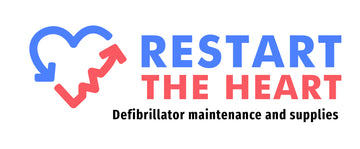The Benefits of First Aid Training for the Whole Family
Accidents and unexpected health crises can occur at any moment, and being prepared to handle these situations can make a significant difference. First aid training for families provides the necessary skills and confidence to respond quickly and effectively, potentially saving lives. Imagine a scenario where a family member experiences a sudden choking incident during a meal.
With first aid knowledge, any family member present can calmly assess the situation and apply the necessary techniques to clear the airway, ensuring the safety and well-being of the loved one.
First aid training empowers each family member with the ability to provide immediate assistance in various emergencies. It's not just about handling major incidents but also managing minor injuries at home or during activities.
By equipping everyone with these skills, families develop a sense of security, knowing they are ready for almost anything. This preparedness creates a supportive environment where members feel safe and cared for.
The Importance of First Aid Training
First aid training is more than just learning a few techniques; it equips families with invaluable skills that can help manage emergencies effectively. When every member of a family learns first aid, they gain the ability to act swiftly and confidently in critical situations. For example, during an unexpected fainting episode, having first aid knowledge allows someone to assess the person's condition, provide initial care, and call for further assistance if needed.
Knowing what to do in emergencies reduces panic and uncertainty, as everyone is prepared to respond appropriately. This peace of mind comes with the assurance that, in times of need, the family is equipped to support each other, whether it be treating a minor cut or offering life-saving CPR until professional help arrives. Additionally, learning first aid fosters teamwork, as all members work together to ensure each other's safety.
First aid training also helps set a good example for younger members of the family. Children and teens who see their parents or siblings engaged in learning these skills are more likely to understand the importance of safety and care. They grow up knowing the vital role they can play in emergency situations, building habits that promote care and responsibility in their daily lives.
Key Skills Taught in First Aid Training
When a family embarks on first aid training, they gain a suite of practical skills that prepare them for everyday emergencies. One of the key skills is CPR (Cardiopulmonary Resuscitation), which can be a lifesaver during cardiac emergencies. Learning this skill enables family members to maintain blood flow to vital organs, buying precious time until professional help arrives. Another crucial area is wound care. Whether handling a minor scrape or a deeper cut, knowing how to clean and dress wounds properly prevents infections and speeds up healing.
Choking relief is another essential aspect of first aid training. Understanding the steps to dislodge an object from a person's throat, whether using back blows or abdominal thrusts, empowers family members to act immediately.
These skills aren't limited to use during serious incidents; they apply in situations like day-to-day mishaps. For instance, knowing basic bandaging techniques can turn a chaotic moment into a manageable task. The skills learned aren't just about applying first aid; they're about fostering a calm, capable approach to unexpected situations.
Benefits for Children and Teens
First aid training offers many benefits for kids and teens, who gain confidence and independence through their new knowledge. They learn to care for themselves and help others, boosting their self-esteem and sense of responsibility. For example, teens who know first aid are more comfortable managing minor injuries or supporting friends during outdoor activities. Their ability to react appropriately in emergencies also makes them reliable companions, enhancing their leadership qualities.
These skills extend beyond emergencies and are invaluable life lessons. By understanding first aid, young people learn about health and safety, building habits that promote a proactive approach to their well-being. This educational aspect encourages them to think critically and stay calm under pressure, traits that are beneficial in various life contexts.
How to Get Started with First Aid Training
Starting first aid training as a family is straightforward and rewarding. Here are some steps to consider when enrolling in a course:
1. Research Local Providers: Look for reputable first aid courses in your area. Community centres, local health services, and schools often offer family-friendly classes.
2. Check Course Content: Ensure the course covers basic skills like CPR, wound care, and choking relief to address a wide range of scenarios.
3. Consider Online Options: If attending in person is challenging, explore online courses that provide practical knowledge and easy-to-follow tutorials.
4. Engage the Whole Family: Turn the learning experience into a fun family activity with practice sessions at home, encouraging everyone to take part actively.
5. Schedule Regular Refreshers: Regularly update your skills to keep up with any changes in first aid procedures and ensure the family remains prepared.
Empowering Your Family with First Aid Knowledge
The ability to respond effectively in emergencies empowers families with the confidence to look out for each other. Having first-aid-trained family members transforms the home into a safer place, where everyone feels supported and equipped to handle unexpected events.
By taking these steps, you're not just learning techniques; you're investing in peace of mind and a deep-seated sense of security. There's no better time than now to consider embarking on this educational and empowering journey with your loved ones.
Empower your family with the essential skills that first aid training provides. As you prepare to make your home a safer place, ensure you have access to the best tools for emergencies. At Restart the Heart, we understand the importance of readiness and offer high-quality defibrillator pads to complement your newfound skills. Taking these steps today can build the foundation for a safer tomorrow.

